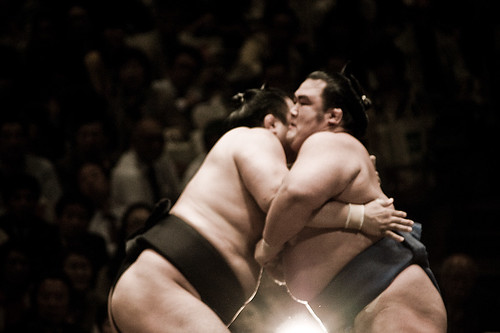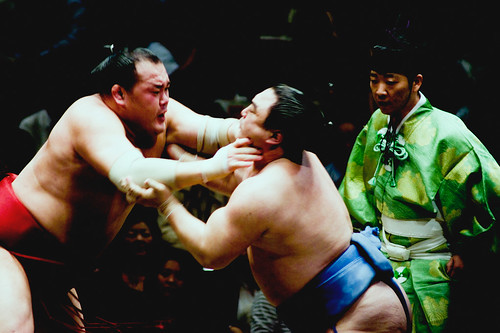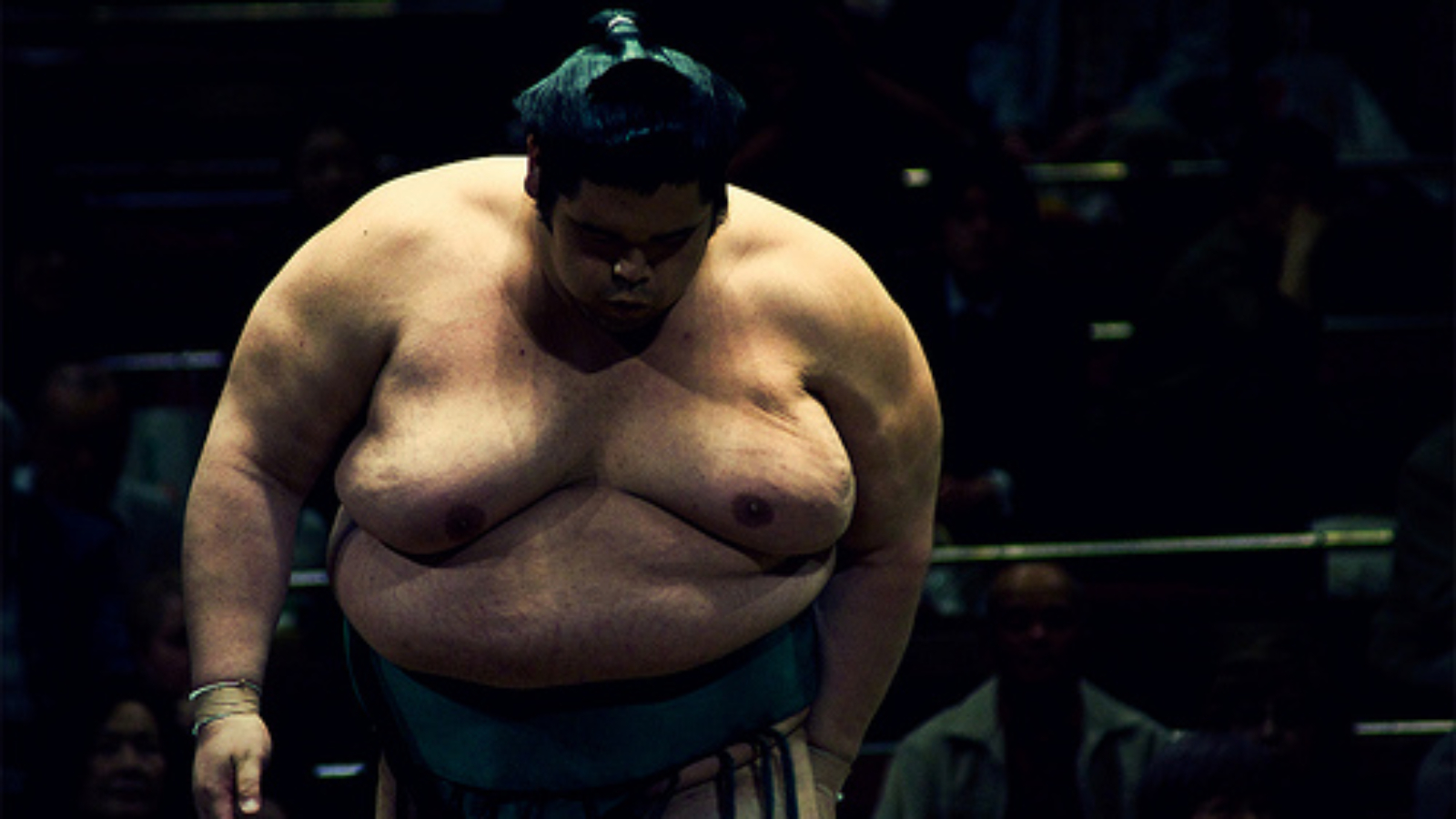With the July Sumo tournament over, Japan has a champion but is left with many bitter memories surrounding the national sport. Over the past few years, the honor of Sumo has been sullied by increasing exposure of its underworld links with the yakuza.
While connections between Sumo and yakuza are nothing new, their relationship came to the forefront of Japan’s public consciousness when it was announced last May that two prominent Sumo officials would be reprimanded for providing ringside seats to yakuza bosses. These prominent seating areas (see video) are usually reserved for major corporate sponsors and are visible on television; the gangsters reportedly pulled the stunt to boost morale and pay respects to their boss and comrades watching the matches from prison.
 Japan had just recovered from a spate of high-level scandals in the Sumo world: In 2008, the chairman of the Japan Sumo Association resigned when a young wrestler he was mentoring tested positive for marijuana, which is very illegal in Japan. Then in February 2010, the reigning Sumo grand champion, Mongolian-born Asashoryu, announced his retirement after drunkenly assaulting a man outside a nightclub during a tournament he ended up winning.
Japan had just recovered from a spate of high-level scandals in the Sumo world: In 2008, the chairman of the Japan Sumo Association resigned when a young wrestler he was mentoring tested positive for marijuana, which is very illegal in Japan. Then in February 2010, the reigning Sumo grand champion, Mongolian-born Asashoryu, announced his retirement after drunkenly assaulting a man outside a nightclub during a tournament he ended up winning.
More recently and perhaps more telling of the yakuza’s corruption of Sumo was the June 2010 revelation that several wrestlers and coaches were betting on professional baseball, also rather illegal. Yakuza members acted as the middlemen for the wrestlers, setting up and handling the wagers. When debts inevitably rose the gangsters intimidated and blackmailed the wrestlers for profit. One coach admitted to acquiring up to $50,000 in debt, while the second-highest ranking wrestler, Kotomitsuki, had around $30,000 extorted by the yakuza for keeping his gambling activities quiet. The Japan Sumo Association summarily suspended those involved, and as many as seven top wrestlers sat out of the July tournament. Three Yamaguchi-gumi crime syndicatemembers and a former wrestler were arrested August 1st on related extortion and gambling charges; as per yakuza procedure, the reputed fall guy died a year ago.
Jake Adelstein elaborates: "The yakuza group alleged to be running the bookie operation is the Yamaguchi-gumi Kodokai, the same faction that had the televised VIP seats at last year's Nagoya Sumo tournament. This incident was such a slap in the face to the establishment and a violation of the understanding that yakuza would keep out of the limelight, that it became the impetus to the National Police Agency crackdown on the Kodokai."
 Sumo has long been accused of underworld associations including match fixing, but the betting scandal is the first time in a while that the charges have stuck. Illustrating this long time cozy relationship is that on July 21st, Sumo stablemaster Matsugane was found to have been renting from the yakuza. Matsugane rented the Osaka building in 1990 from what police claim is a front company for the Yamaguchi-gumi.
Sumo has long been accused of underworld associations including match fixing, but the betting scandal is the first time in a while that the charges have stuck. Illustrating this long time cozy relationship is that on July 21st, Sumo stablemaster Matsugane was found to have been renting from the yakuza. Matsugane rented the Osaka building in 1990 from what police claim is a front company for the Yamaguchi-gumi.
The discovery of this 20-year relationship between a respected Sumo figure and a yakuza crime boss is yet another disgrace for the sport, which has lost 10% of its television viewership and many significant sponsors. Sumo is not as popular as it once was, especially among young people, who would sooner watch baseball or soccer. Television networks have picked up on this and have reduced Sumo airtime in lieu of other sports. The scandals of recent years are mostly to blame, as the aging public perceives a decline of the sport’s dignity (hinkaku) and a lack of respect for tradition in the modern age.
—Nestor Bailly
Images via Flickr, user anadah
